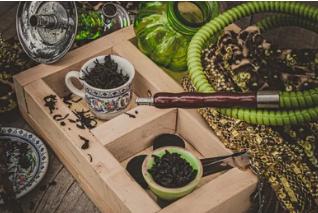
Microorganisms are widely distributed in the natural world and play an important role in transforming materials and biological cycles. Microorganisms are closely related to tea from production, processing, and storage. With the rapid development of microbiology in recent years, the application of microorganisms in the growth and reproduction of tea trees, pest and disease control, fertilization and management, processing and storage of tea leaves, and the development of health products has become more and more important. The microbial content index of processed tea leaves is also getting more and more attention from society in the process of the tea trade.
Lifeasible offers a one-stop platform for tea microbiological testing through a global network of state-of-the-art laboratories covering a wide range of black, green, yellow, white, and black teas. Our tea microbiology laboratory is providing microbiological analysis services to support your tea quality control program.
Our solutions cover the entire process, from sample handling to data analysis; you only need to provide the original sample. We will process and test the samples to strict standards, ultimately providing accurate test reports. With our experience, expertise, and cutting-edge facilities, we offer the following tea microbiology services, including but not limited to:
| Tea Microbiological Testing Items | Tea Microbiological Testing Items Description | Tea Microbiological Testing Methods |
|---|---|---|
| Tea Colony Count Testing | Bacterial colony count directly reflects the degree of contamination of tea by bacteria, which is closely related to the quality, drinking safety, and export of tea. We provide a variety of testing methods to help customers achieve rapid and non-destructive detection of the total number of bacteria in tea. |
|
| Tea Bacteria Testing | Tea is highly susceptible to microbial contamination in processing and other aspects, affecting its quality. We can test a variety of bacteria in tea, including E. coli, Salmonella, Listeria monocytogenes, Staphylococcus aureus, Vibrio parahaemolyticus, Bacillus cereus, Shigella, β-type hemolytic streptococcus, Clostridium botulinum, Vibrio cholerae, Aspergillus, Campylobacter jejuni, Enterobacter sakazakii, Yersinia enterocolitica, etc. |
(1) Sample processing.
(2) Determination of a variety of bacteria in tea.
(3) Generate test results.
(4) Data analysis and evaluation.
Lifeasible offers customized tea microbiological solutions to detect colony counts and various microbiology with the aim of enabling our customers to produce tea that meets national tea hygiene standards. Our dedicated team provides customized solutions to ensure that our clients' needs are met. If you are interested in these services or solutions, please contact us to obtain the latest information.
Lifeasible has established a one-stop service platform for plants. In addition to obtaining customized solutions for plant genetic engineering, customers can also conduct follow-up analysis and research on plants through our analysis platform. The analytical services we provide include but are not limited to the following:
Get Latest Lifeasible News and Updates Directly to Your Inbox
Adaptive Evolutionary Mechanism of Plants
February 28, 2025
Unraveling Cotton Development: Insights from Multi-Omics Studies
February 27, 2025